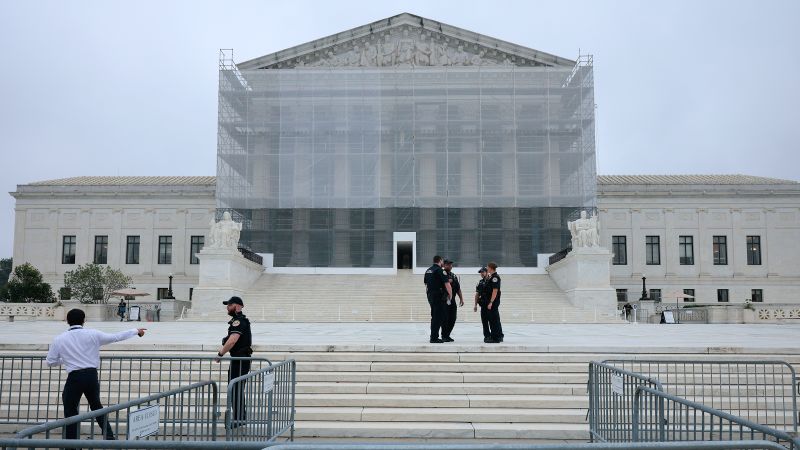Supreme Court Overturns Rulings Supporting Transgender Rights in Multiple States
The Supreme Court has reversed appellate decisions favoring transgender individuals in four states, impacting healthcare access and participation in sports.
Subscribe to unlock this story
We really don't like cutting you off, but you've reached your monthly limit. At just $5/month, subscriptions are how we keep this project going. Start your free 7-day trial today!
Get StartedHave an account? Sign in
Overview
- The Supreme Court overturned appellate rulings supporting transgender rights in four states, affecting healthcare and sports participation.
- The Court ordered a review of discriminatory healthcare coverage refusals in West Virginia and North Carolina for transgender individuals.
- No action was taken on cases from Arizona, Idaho, and West Virginia regarding transgender students in sports, leading to the rejection of favorable rulings.
- The Supreme Court ruled against state laws prohibiting gender-affirming treatments for minors, citing constitutional grounds.
- Lower courts are directed to reevaluate rulings on state policies regarding gender-affirming care coverage in government insurance plans.
Report issue

Read both sides in 5 minutes each day
Analysis
Center-leaning sources frame the Supreme Court's decisions on transgender rights with a focus on legal implications, emphasizing constitutional interpretations and judicial processes. Their perspective reflects concern over the potential erosion of protections for transgender individuals, highlighting a perceived bias against these rights while maintaining a neutral tone in reporting.
Articles (5)
Center (2)
FAQ
The Supreme Court's recent rulings overturned appellate decisions supporting transgender rights related to healthcare access and participation in sports in multiple states. This includes upholding bans on gender-affirming treatments for minors and requiring courts to reevaluate policies about transgender healthcare coverage and birth certificate changes.
The affected states include West Virginia, North Carolina, Idaho, Arizona, Oklahoma, and Tennessee. Specific rulings involved healthcare coverage refusals, bans on certain medical treatments for transgender minors, and participation of transgender students in school sports.
The Supreme Court ruled in Tennessee's favor, upholding a law prohibiting puberty blockers and hormone therapy for transgender people under 18, stating that the law does not violate the Constitution’s equal protection clause.
LGBTQ+ advocacy groups like the ACLU and Lambda Legal have condemned the Supreme Court's rulings as devastating setbacks but emphasized that legal precedents protecting transgender individuals from other forms of discrimination remain intact. They pledged to continue fighting for transgender rights and healthcare access.
The Supreme Court ordered appellate courts to reexamine several cases involving transgender healthcare access, insurance coverage, and birth certificate changes, particularly in West Virginia, North Carolina, Idaho, and Oklahoma, signaling further legal review is forthcoming.
History
- This story does not have any previous versions.

